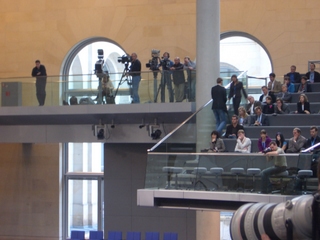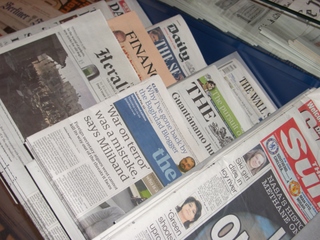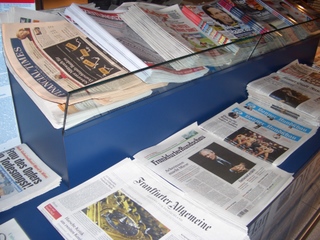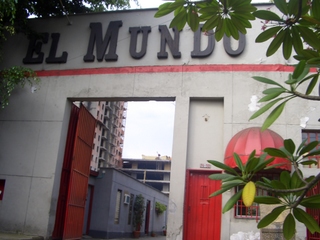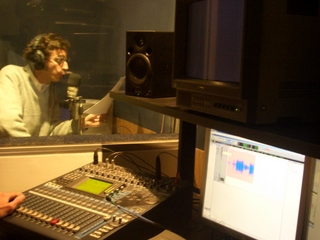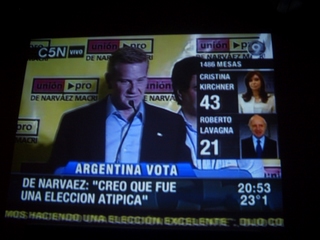Accountability makes Media more believable
 In times of Berlusconi & Co., citizens should be enabled to understand the mechanism of the media more profoundly: Why do some news make it into the news and others don’t? If the press wants to stay independent, the media itself and its users must become proactive. Which potential for this do old and new instruments of media accountability embody?
In times of Berlusconi & Co., citizens should be enabled to understand the mechanism of the media more profoundly: Why do some news make it into the news and others don’t? If the press wants to stay independent, the media itself and its users must become proactive. Which potential for this do old and new instruments of media accountability embody?
That is what MediaAcT is about, an international research project. It examines the development and the influence of various forms of media accountability in Western and Eastern Europe as well as in two Arabic countries. For the first time, innovative instruments of media regulation (for example media blogs, online-ombudswomen) are analysed in a comparative approach.
Susanne Fengler, professor for International Journalism at the department of Journalism at the Technical University Darmstadt and CEO of the Erich-Brost-Institut for International Journalism is the head of the EU-supported project MediaAcT. The MDG-Media-blog wanted to know from her:
What gave you the idea for your project Media Accountability and Transparency in Europe (MediaAcT)?
Susanne Fengler: Traditional instruments of media accountability, such as press councils, are no longer capable of encountering the challenges of the internet. The case of a young man from the Netherlands makes this point clear: When looking for employment, an interview, which he had given three years ago, turned into an obstacle for his hirement. It was still accessible through google and the newspaper refused to take it offline. The man turned to the Dutch press council, but the experts were helpless. They did not know how to react.
Not only researches and experts face new issues due to the internet, it also puts a lot of pressure on the media. Advertisement has drifted to the internet and the editors are suffering from massive shortages. The publishers are looking for new synergies and this causes a massive concentration of media. That is why a functioning media accountability has become so crucial.
However, so far, there has been very little research on new approaches of media accountability and hardly any comparative empirical research. MediaAcT tries to close this gap.
We are comparing ways of media accountability in 13 countries in Europe and the Arabic world and have a look at where new forms of media accountability can be found and which approaches might function very well.
What has already become clear beforehand?
Fengler: We assume that the various approaches of media accountability will be quite different throughout the different journalistic cultures. The central- and northern- European countries, for example, face a long tradition of institutionalized media accountability. Thus, in Germany and the Scandinavian countries, there have been press councils for quite some time. Between 1950 and 1970, there was a remarkable wave of newly found councils, most of which have not ceased existence ever since then. The Eastern European countries have partly copied this model during the transformational process in the 1990s. Since then, Poland has created a press council, Estonia even two. On the other hand, other European countries such as Romania do not have a press council at all. Also concerning the media journalism there are quite different developments. In Great Britain, for instance, media journalism has already played a crucial role ever since Daniel Defoe. By now, a lot in this field is happening online, for example on pages such as journalism.co.uk. In this aspect, the British are the pioneers in Europe. However, the Northern African states still have a big deficit in this field. So we also want to give impulses with our project.
How could innovative forms be transferred to other cultures?
Fengler: When transferring over the borders of journalistic cultures, the internet certainly plays a crucial part. It is easier to try out new ideas on the web than founding new institutions such as the press council. That is why we are hoping to be able to get in touch with bloggers and make the blogg-sphere interested in media accountability. The BILD-blog gives an example of how well this can function.
Responsible and pluralistic media are a key to democracies – and also for reaching the UN-Millennium Goals. What is media accountability able to bring about in times of media concentration?
Fengler: In times of Berlusconi & Co., we must enable citizens to understand the mechanism of the media: Why do some news make it on the media and others don’t? This is especially important in countries such as Romania and other Eastern European states, where the media is in the hands of very few and partly foreign corporate groups. The press councils in Germany and Great Britain, for example, have been founded in order to prevent interventions from the State. If the press wants to stay independent, the media itself and its users must become proactive.
How are you planning on gaining your stakeholders’ attention?
Fengler: We want to create awareness for media accountability among those who are politically responsible, among the media managers, among the readers and obviously among the journalists. The creators of media and the managers must realize that they can get closer to their readers via ombudsmen and that, on the long run, this will help them also economically.
In Germany, quality media like the magazine Der Spiegel are investing heavily in counter-research and documentation. That is what makes them believable. Furthermore, we want to develop recommendations for EU law-makers and provide blueprints for everybody who is in charge. For example, we are considering a handbook with examples of successful approaches.
How did the politically responsible react to your project?
Fengler: We get the impression that the awareness for media accountability is rising among those in charge. For our advisory board, we could gain, among others, the former OSZE media commissioner Prof. Dr. Miklos Haraszti. So far we have received very positive reactions to our project. MediaAcT is the only project related to media and coordinated by a German institution, which is being supported in the seventh research program of the European Union.
How do you estimate the potentials of media accountability?
Fengler: Media accountability is a key indicator for a pluralistic media system and has an enormous potential, which so far has hardly been exploited. Especially the internet with its various possibilities of participation offers a lot of space for innovations.
Susanne Fengler, PhD, is the director of the Erich Brost Institute and professor for international journalism at the Institute of Journalism, TU Dortmund University. She coordinates the EU project “Media Accountability and Transparency in Europe“ (MediaAcT).
Previously she has worked as a researcher and lecturer at Freie Universität, Berlin, at the universities of Zurich, Basel, Lucerne, and Fribourg (Switzerland), for the Swiss school for journalism MAZ and for the International Institute of Journalism (IIJ). Her professional experiences include journalism and political communication. Media accountability is one of her main research interests. Other topics are comparative journalism studies, political journalism, development communication, and the economic theory of journalism. She has published numerous national and international books and articles and edits the new book series “Kompaktwissen Journalismus”. In cooperation with Stephan Russ-Mohl, she has published a book and several national and international articles about the application of economic theory to journalism research.


